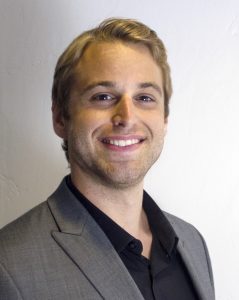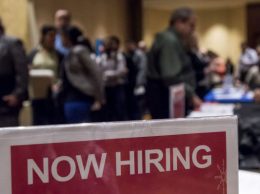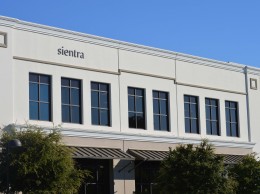
Alex Kacik
The Santa Barbara-based World Business Academy thrust itself into the spotlight when it sued the California State Lands Commission last week.
The nebulously named nonprofit challenged the commission over the approval of temporary land lease extensions at the Diablo Canyon Power Plant, which plans to close in 2025. The commission erred, according to the lawsuit, when it gave the Pacific Gas and Electric Co. an extension without performing an environmental review of the impacts on the surrounding sea life and ecosystem.
The suit is part of the academy’s mission to warn of the dangers of nuclear power and explore the potential of creating renewable energy systems. The nonprofit was founded in 1986 guided by the overarching ideal that businesses throughout the world should operate responsibly and preserve the planet.
“It was based on what the proper role for business is in society,” WBA Executive Director Matt Renner said. “The founders sought to find out how businesses can act responsibly as opposed to the old saying, ‘the business of business is business.’”
The academy was conceived during a series of meetings at the Stanford Research Institute by Willis Harman and Rinaldo Brutoco, among other business leaders. Harman, who died in 1998, was a senior social scientist at SRI International where he explored long-term strategic planning and policy analysis for businesses and government agencies and was eventually appointed a regent of the University of California. Brutoco played a lead role in many major companies like Men’s Wearhouse and Channel 100, the first pay-cable outlet.
“They were part of this new way of thinking about business, like you see now with socially responsible investing. They were working to change business from the inside, as an executive and board member, not an outsider,” Renner said.
The academy spearheaded the Safe Energy Project, which aims to replace all energy formed from nuclear and fossil fuels in Santa Barbara County — and eventually in California — with a comprehensive renewable energy system over the next 10 years. One of its goals was to close the Diablo plant.
“The extension of the PG&E lease to 2025 will increase the public’s exposure to potential reactor-core damaging seismic risk at Diablo Canyon by an amount equal to 21 percent of its operating date,” the lawsuit against the commission says. That could lead to 25 infant mortalities over the next nine years, WBA’s researchers estimate.
Another goal of the project is to create a microgrid, a small-scale renewable energy system that replaces the current electrical power grid.
The vast majority of South Santa Barbara County’s power is carried through a single pair of high-voltage transmission lines through deteriorating transmission towers perched atop steep and remote mountaintops, Renner said.
According to a 2014 Southern California Edison report, all 82,700 metered customers in the area could lose power for weeks if the lines were compromised.
The organization — which is comprised of 10 full-time employees and a board of directors led by Apple’s Creative Director James Selman — is also backing the Community Environmental Council’s Community Choice Energy study, which would allow local governments to purchase electricity from sources like wind, solar and geothermal and deliver it through existing infrastructure.
Members of the nonprofit provide counseling to business leaders and discuss ways to foster socially responsible business practices at speaking events throughout the world. The academy is holding a reception and black-tie dinner on Sept. 18 at the El Encanto Hotel in Santa Barbara honoring founder and president of Sage Publications and major philanthropist Sara Miller McCune, musician and environmental activist David Crosby and president of Ocean Futures and film producer Jean-Michel Cousteau.
“We are focused on system-wide change and our role is to demonstrate the opportunities for businesses to be a part of changing how we treat the environment,” Renner said.
Goleta dental clinic expands
The Goleta Neighborhood Dental Clinic is tripling in size after receiving grants from the federal Health Resources and Services Administration.
The clinic is part of the Santa Barbara Neighborhood Clinics, a nonprofit Federally Qualified Health Center that provides affordable health care for low-income patients. The dental clinic opened in October 2014.
The Goleta clinic at 164 Kinman Ave. is scaling up in order to meet the dental needs of about 3,000 residents. It will celebrate the expansion at a ribbon-cutting ceremony on Aug. 12, where Rep. Lois Capps, D-Santa Barbara, will discuss FQHC’s role in health care delivery.
The clinic accepts both private insurance and Denti-Cal, California’s fee-for-service dental program for Medi-Cal patients. According to the 2011 Report on Children’s Oral Health in Santa Barbara County, the most recent year for which data is available, dental disease affects nearly 40 percent of the county’s preschool-age children.
The SBNC was formed in 1998 when three existing medical clinics merged — the Isla Vista Health Projects, the Carrillo Clinic and the Westside Clinic. It now consists of four medical clinics, two dental clinics and health promotion services offering care to nearly 17,000 low-income patients a year, according to its website.
• Contact Alex Kacik at akacik@pacbiztimes.com.






 Print
Print Email
Email

















